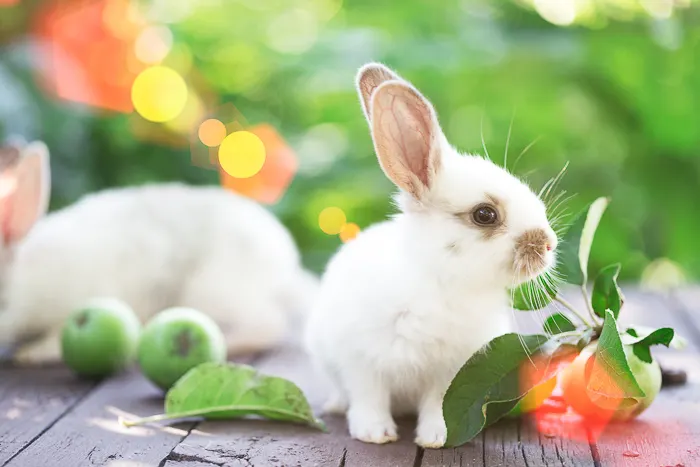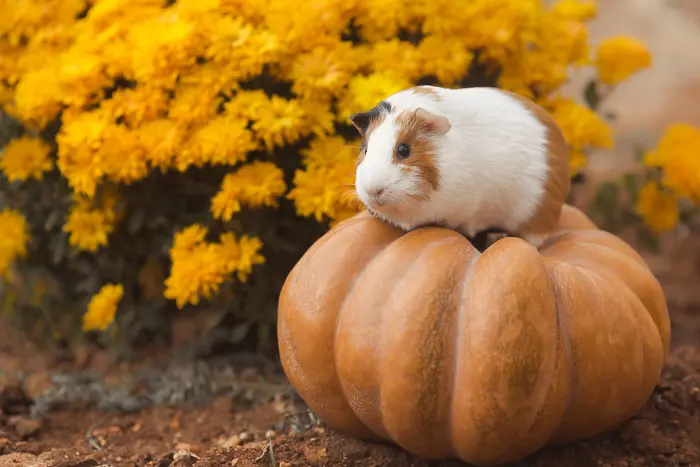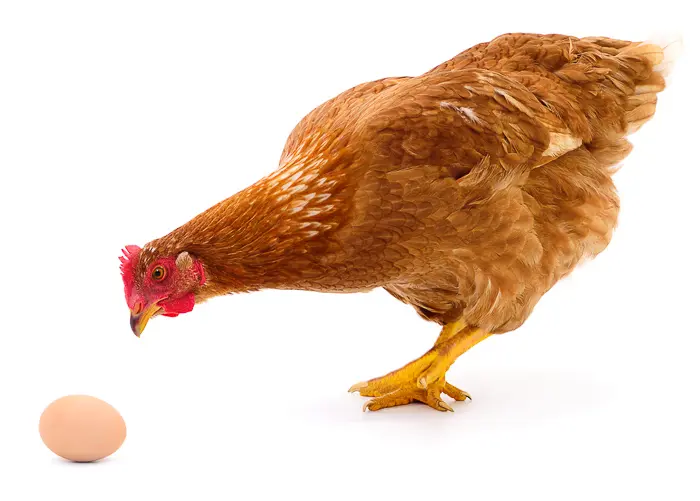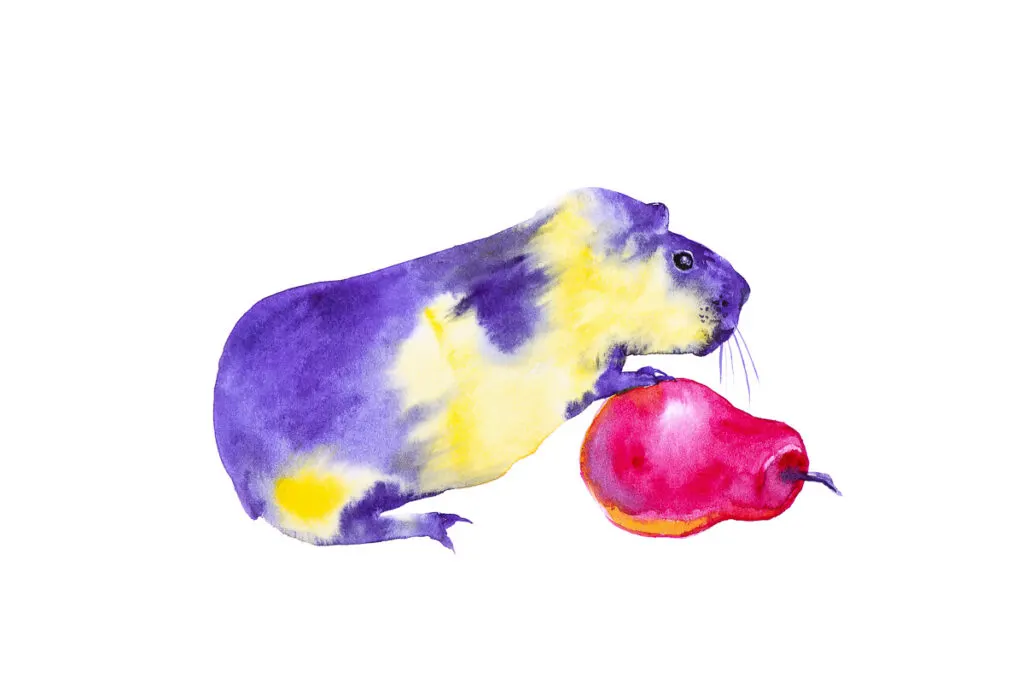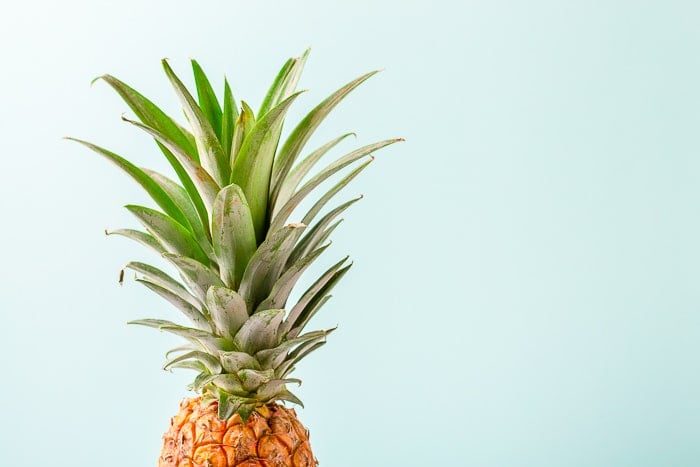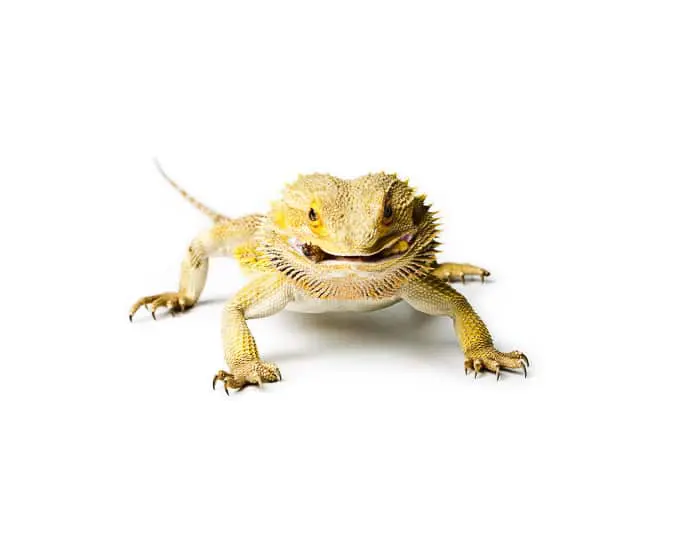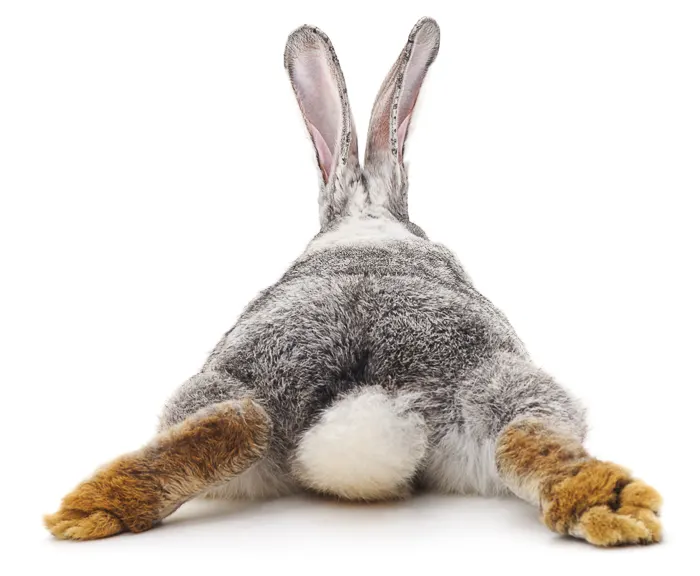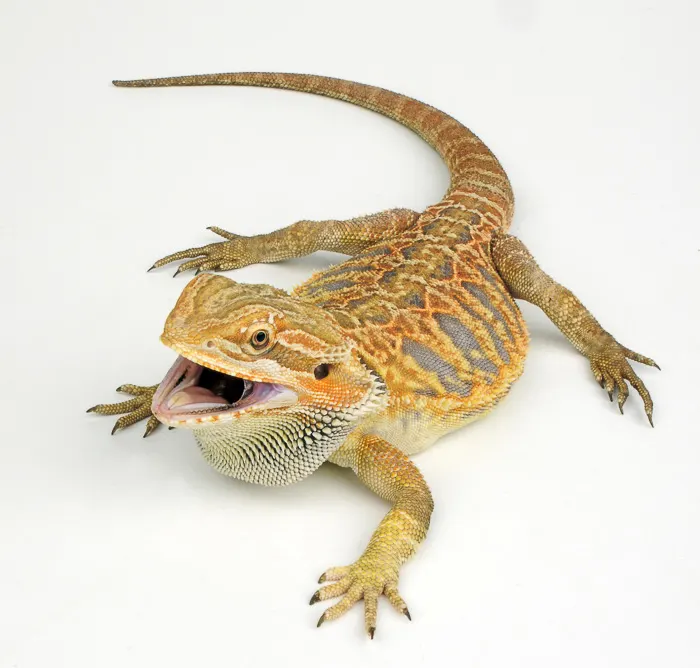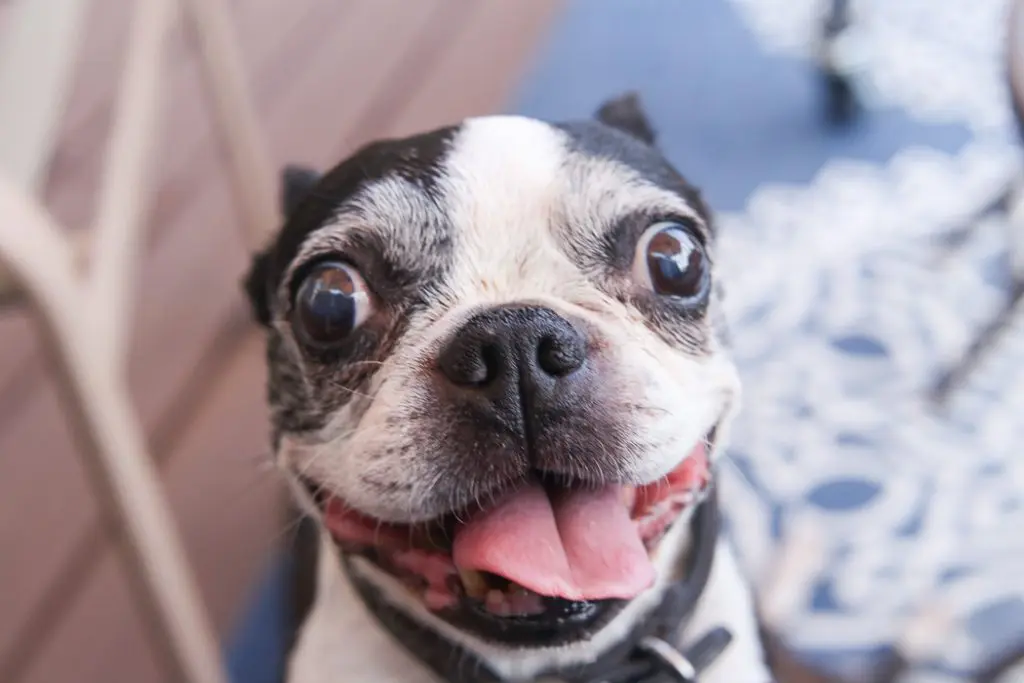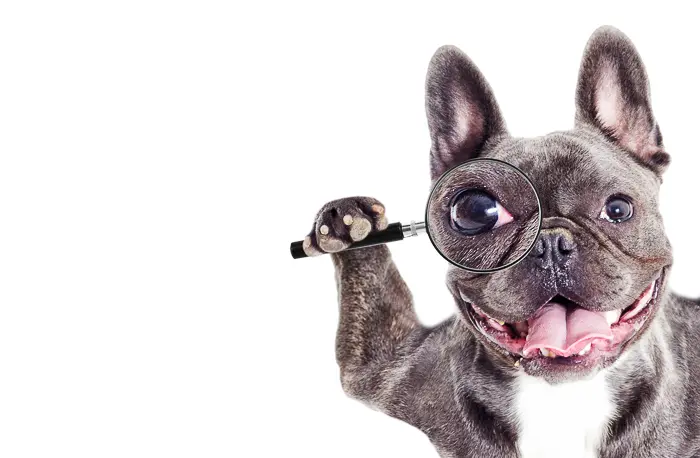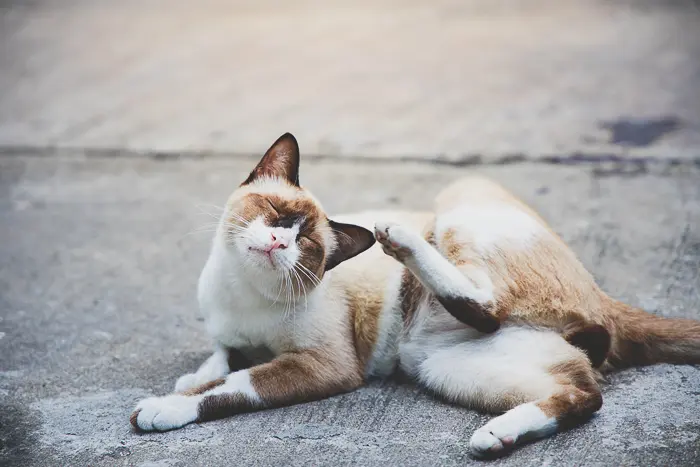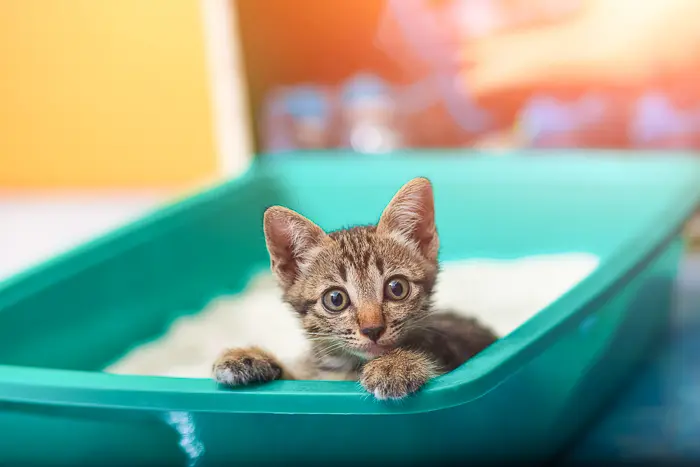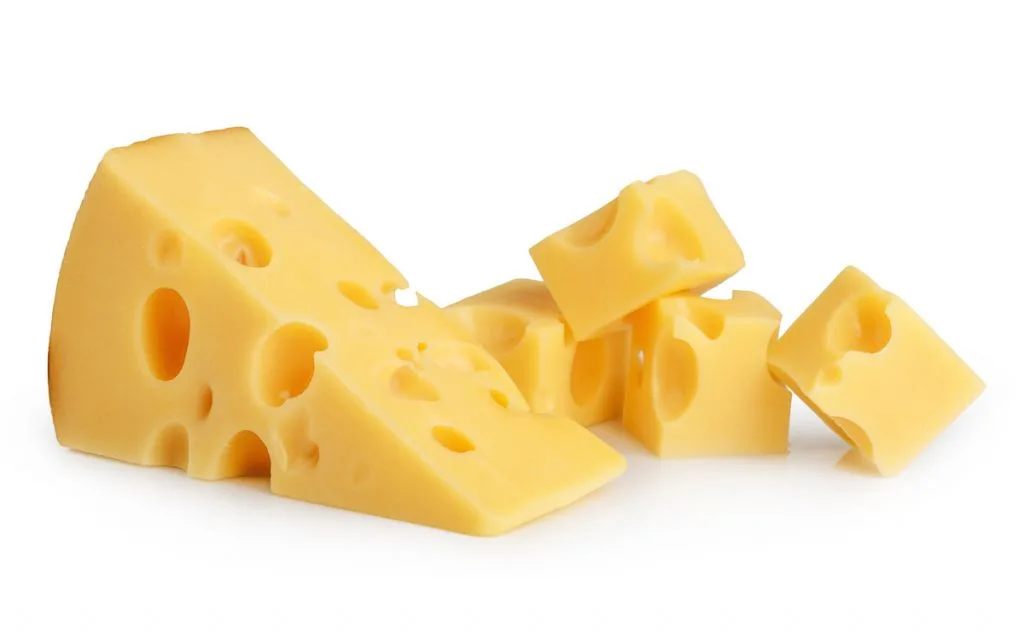Poop is a big stinky issue but can tell you so much about your bearded dragons health. Dr. Jess breaks down everything you need to know about Bearded Dragon Poop in this article below:
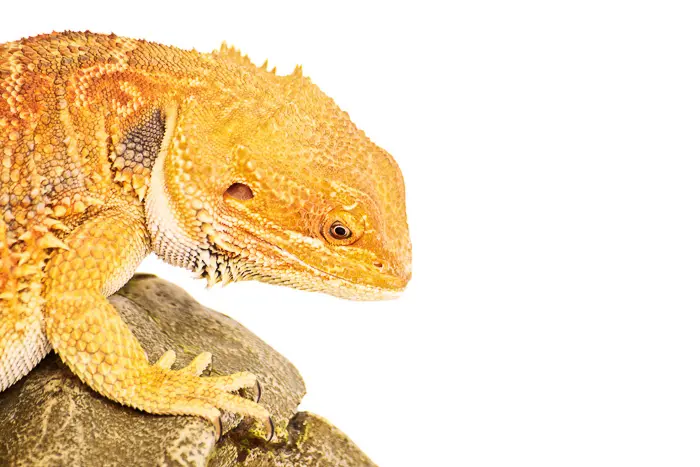
Do Lizards Poop?
Lizards of many different types have a structure called the cloaca, which serves as a central collecting chamber for the digestive, urinary, and reproductive systems of the lizards.
Most reptiles expel a combination of feces and urinary wastes at the same time through the same gateway, a body part called the cloaca.
When your lizard makes feces, urine, or eggs, they are passed into the cloaca first before being released into the outside world, all through one single orifice.
Essentially, bearded dragon poop is very similar to bird poop. This shouldn't come to any surprise because of the close evolutionary relationship between birds and reptiles!
Bearded dragon poop normally contains two distinct parts – one that is fairly solid and brown or black colored, and another part, white and paste-like or chalky.
The brown portion represents the beardie's feces, and it is produced in the same basic manner that mammals produce their feces.
Do Bearded Dragons Urinate (Pee)?
Bearded dragons do NOT urinate in the same manner as what you typically think other animals do it.
How often a bearded dragon urinates is going to vary for each pet.
A typical baby bearded dragon will “urinate” the most at anywhere from 1 to 3 times daily via passing the white part of the poop (urate).
An adult bearded dragon will typically “urinate” between 1 to 4 times per week.
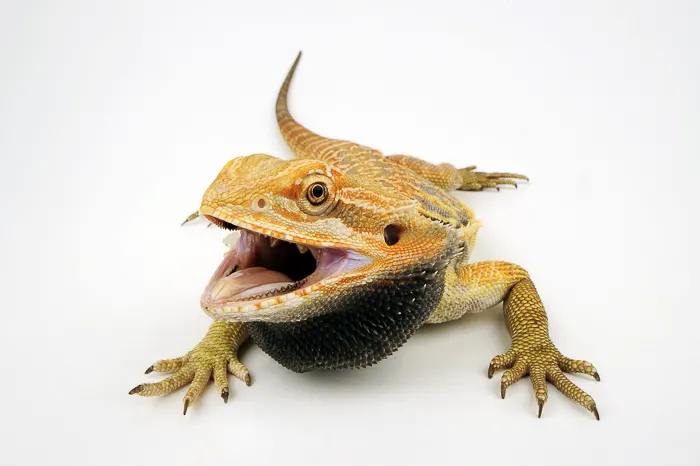
What Does Normal Bearded Dragon Poop Look Like?
The most common and “normal” bowel movement type in bearded dragons will be brown and white. The brown section of the waste will be log-shaped.
A healthy beardie poop should be formed with a distinct white part on the end or toward one if the sides or ends.
The white color is the urate, or what represents their “urine” – the waste product from your beardie’s kidneys.
Bearded dragons don’t pee, so urates come out with their poop, very similar to a bird.
How Often Do Bearded Dragons Poop?
The frequency at which your bearded dragon poops will depend on multiple factors, such as their diet. and the amount of food it gets.
A bearded dragon that eats mostly meat on a daily base will defecate almost every day, whereas bearded dragons that eat mostly greens won't have a bowel movement that often.
A baby or juvenile bearded dragon will most likely poop daily or even more than once a day, up to multiple times per day.
Older dragons, such as adult bearded dragons, will likely poop much less frequently, possibly once a day or even one a week or so.
You must pay close attention to your beardies and their regular habits in order to figure out what is a normal defecation frequency for your pet.
Over time, you will see what is your pet's “normal.”
Factors that can impact frequency of defecation:
- Age
- Diet
- Hydration status
- Environment or bearded dragon tank
- Illness/Disease
- Stress
- Brumation (bearded dragon's version of hibernation)
How Long Can Bearded Dragons Go Without Defecating (pooping)?
Bearded dragons should pass a bowel movement at least once per week, but impacted bearded dragons can go without defecating for several weeks, something that is not good for their health.
This is very painful for a bearded dragon and can result in serious illness, injury, and in severe case, can lead to death of the pet.
If you believe that your pet is impacted or constipated, contact your local veterinarian immediately!
Find out how long bearded dragons can without food too!
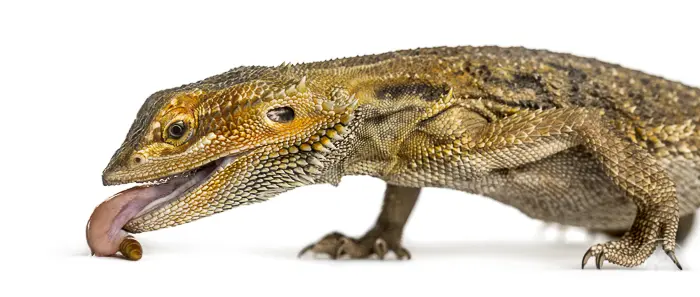
Reasons Why Your Bearded Dragon May Not Be Pooping (Constipated):
Consumption of Substrate:
One of the biggest potential causes of impaction in bearded dragons is the issue of certain substrates, or the product use in the bottom of their tank, such as sand-like substances.
They are sometimes grabby eaters which can lead to them eating the sand (or other substances) inside their cage.
Since the bearded dragons can not digest sand, the sand can build up in their stomach until it causes a major problem, impacting them and causing a blockage in their digestive system.
This type of impaction can be prevented by choosing something that either: A. Can be digested by the bearded dragon, or B. Can’t be eaten by the bearded dragon in the first place.
Inadequate or Insufficient Diet:
If your bearded dragon does not have the proper diet, then this may affect their digestive system and how often they do or do not poop.
Parasites:
The two most common parasites in beardies are coccidia and pinworms.
Stress:
Bearded dragons can become very stressed for many different reasons, which can lead to either end of the feces spectrum, constipation or diarrhea.
If your bearded dragon is stressed it is fairly common for them to become constipated for a few weeks after the stressful event ceases, sometimes forgoing eating their meals too.
Incorrect Lighting:
Too much or too little lighting and the timing of lighting can greatly affect your bearded dragon and their elimination routine.
Ways to Help A Constipated Bearded Dragon:
If you feel that your bearded dragon may be constipated, contact your local veterinarian to see what you should do. most likely, your vet will want for you to bring in your pet.
Your vet will probably want to get their hands on them, give them a full physical exam, and proceed from there.
They may want the bearded dragon to take a warm bath, be given certain foods to help them pass their feces, or even an exercise regimen to hopefully get things in their digestive system up and moving again.
Other times, your vet may want to look into giving your pet an enema to help them remove the feces.
What is the Normal Amount For a Bearded Dragon to Poop?
Great question! Read on below!
What is the Consistency of Healthy Bearded Dragon Stool?
The brown part of bearded dragon poop and the white part of the bearded dragon's poop has a soft-firm consistency.
Too soft or runny or rock-hard fecal material is not normal for a healthy bearded dragon.

What Indicates Abnormal Bearded Dragon Poop?
There are many visual and consistency-related cues to help one recognize that there may be a problem with your bearded dragon's poop.
Soft Runny Poop:
The most common reasons for loose or runny feces, AKA diarrhea, is due to their diet or parasites.
There main parasites that affect bearded dragons are pinworms, coccidia, nematodes, Protozoa, and giardia.
All of these are diagnosed by a fecal test that can be performed at your veterinarian's office on exam.
As a fair warning – most bearded dragons have some amount of coccidia and/or pinworms and are asymptomatic (they don't show any signs or symptoms of health issues).
Many veterinarians prefer not to treat for parasites unless there is a problem (like diarrhea or weight loss) with the lizard. Your vet may have a different opinion.
Runny loose stool needs to be treated as soon as possible since diarrhea can severely dehydrate your pet.
Chalky Hard Urate:
The white part of the poop should be soft and anything other than that will indicate that something is off.
If the white part of your pet is hard and/or chalky, this may mean that your dragon is dehydrated or that your bearded dragon has too much calcium in their diet.
You will need to amend your dragon's diet with the help of your veterinarian, usually by offering less calcium-rich foods in their diet or by cutting back on calcium supplements being offered.
All White:
All white poop in your dragon can mean that he/she is overly-hydrated, as the white part is urate.
Yellow Poop or Yellow Urate:
The yellow color of a bearded dragon's poop can be from red fruits in their diet.
It can also be a sign of a liver problem that would need blood work to help your veterinarian to determine.
Blood in Your Bearded Dragon’s Poop:
Blood in your lizard's stool can be upsetting and should be addressed by your veterinarian.
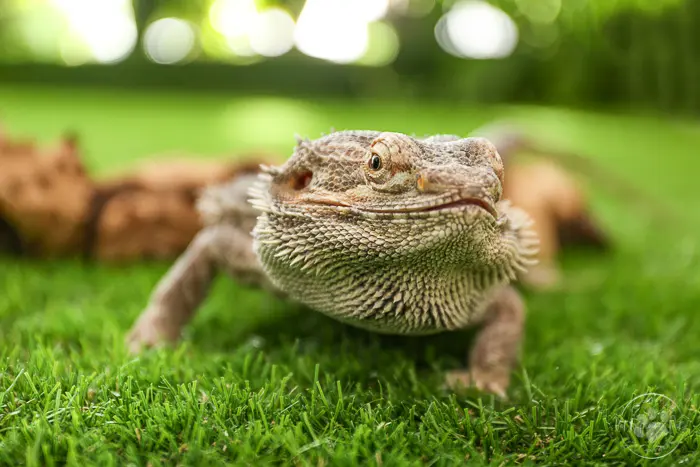
Abnormally Foul-Smelling Feces:
Poop stinks.
Stinky smelly poops happen on occasion, and these poops are no big deal for this one time occurence.
Specific foods may cause increased odors, or they may be caused by short-term intestinal bacteria increases in your pet’s digestive tract.
But if foul poop is a constant or consistent thing for your bearded dragon, then it could be your indicator of a serious health issue.
Therefore, if you notice multiple foul-smelling poops coming from your pet, then contact your local veterinarian to formulate a game plan on what to do next.
Most likely, your vet will ask you to bring your pet in to be evaluated by your vet.
What Should You Do If Your Beardie's Feces is Abnormal?
Bearded dragon poop can cause a big stink! It can also tell you so much about the insides and health of your pet.
If you notice any abnormalities with your bearded dragon's poop, contact your veterinarian immediately to discuss your concern.
Sometimes a change in feces can mean a minor change needs to occur to correct the problem.
Sometimes, changes in poop can mean something more serious – so take changes in your pet's poop very seriously!

![[Vet Explains Pets]](https://vetexplainspets.com/wp-content/uploads/2024/09/cropped-vetlogo-199x66.png)

